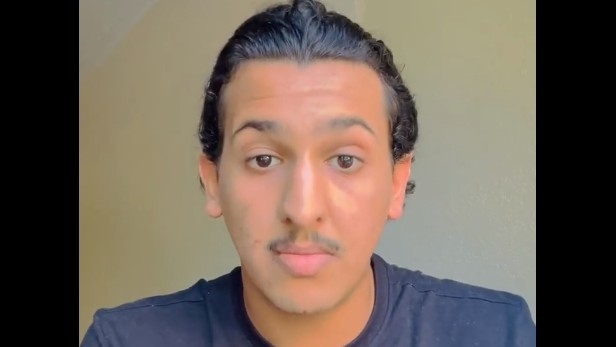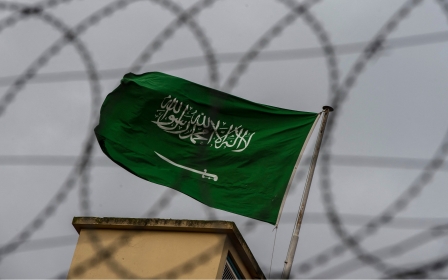Kuwaiti activist sentenced to five years in prison for tweets 'insulting' Saudi Arabia

A Kuwaiti court has sentenced an activist to five years in prison over "insulting" tweets about Saudi Arabia, according to the Geneva-based Euro-Med Human Rights Monitor.
Salman Al-Khalidi, 23, was sentenced in absentia by Kuwait's high court, which convicted him of "insulting the Kingdom of Saudi Arabia and publishing false news".
Khalidi said on Tuesday in a video message on Twitter that he felt "in danger" following the court's decision and had fled Kuwait for Qatar to avoid being pursued by security agencies.
"This is an unjust ruling against me, which breaches the values of international laws," he said, adding that he had represented Kuwait in 46 international contests as an inventor.
The Penal Code of 1960 grants authorities in Kuwait broad power to punish and prosecute activists for expressing their opinions.
New MEE newsletter: Jerusalem Dispatch
Sign up to get the latest insights and analysis on Israel-Palestine, alongside Turkey Unpacked and other MEE newsletters
Euro-Med Monitor said in a statement that it had reviewed Khalidi's Twitter feed and found that his tweets "fall within the framework of his right to freedom of opinion and expression.
"[It] is legitimate criticism of authorities in Kuwait and some other countries, and is no justification for his detention, trial, and imprisonment," it said in a statement.
"Restricting people's freedom to express their opinions in a peaceful manner is an arbitrary use of the law that challenges the Kuwaiti constitution and Kuwait's international obligations under the relevant human rights treaties."
Free speech crackdown
The offending tweets referenced Jamal Khashoggi, a Middle East Eye and Washington Post journalist, who was assassinated inside the Saudi consulate in Istanbul in October 2018.
Khalidi appeared in a video on social media in December 2021 criticising Saudi authorities for banning him from entering the country for 25 years. He learned about the decision when attempting to travel from Qatar to Saudi Arabia via the Salwa border between the two countries.
In 2015, Kuwait passed the Cybercrime Law, which contained vaguely written articles that could be interpreted to punish activists for expressing their opinions on social media.
Kuwait's Penal Code also states that acts carried out by citizens or residents without the government's permission that could expose the country to "danger of war or severing of political relations" are punishable with no less than three years in prison, up to a maximum of life imprisonment.
Euro-Med Monitor called on the Kuwaiti authorities to rescind the ruling against Khalidi and to "stop passing laws restricting individuals' rights to peaceful criticism and to freely express their legitimate opinions".
In April, Saudi authorities arrested several prominent judges on charges of "high treason", in what human rights groups say resembles previous purges conducted against rivals of Saudi Crown Prince Mohammed bin Salman.
Rights groups have repeatedly criticised MBS's crackdown on dissent and increased consolidation of power since his appointment as crown prince in 2017. That year, scores of the kingdom's economic and political elite were detained at Riyadh's Ritz-Carlton hotel in a crackdown that unsettled some foreign investors.
Middle East Eye delivers independent and unrivalled coverage and analysis of the Middle East, North Africa and beyond. To learn more about republishing this content and the associated fees, please fill out this form. More about MEE can be found here.





